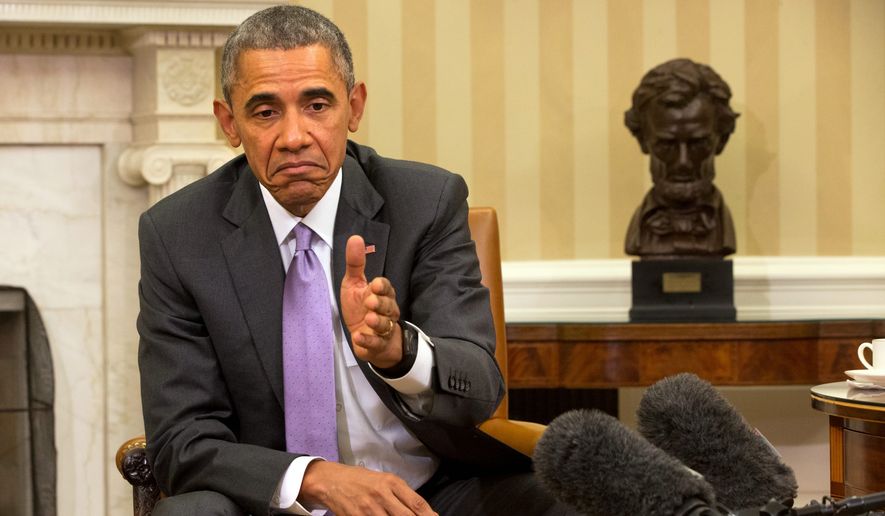
The Obama administration — despite repeatedly assuring Congress that Iran would remain barred from the U.S. financial system — secretly mobilized to give Tehran access to American banks to convert the windfall of cash it received from sanctions relief under the 2015 nuclear deal into dollars, an investigative report by the Senate has revealed.
A copy of the report, obtained by The Washington Times, outlines how Obama-era State and Treasury Department officials discreetly issued a special license for the conversion to a major Omani bank and unsuccessfully pressured two U.S. banks to partake in the transaction, all while misleading lawmakers about the activities.
The document, compiled by the Senate’s Republican-led chief investigative subcommittee, began circulating Tuesday, just as the Trump administration issued its harshest warnings to date to foreign governments and companies to avoid doing business with Iran or find themselves in the crosshairs of Washington’s reimposition of sanctions as part of Mr. Trump’s withdrawal from the nuclear deal.
“Companies doing business in Iran face substantial risks, and those risks are even greater as we reimpose nuclear-related sanctions,” said Sigal Mandelker, Treasury Department undersecretary for terrorism and financial intelligence.
She also called on foreign governments to harden their financial systems against “deceptive” Iranian transactions that ultimately channel money to terrorists.
The Iranian government “uses shell and front companies to conceal its tracks” as part of an elaborate scheme designed to procure cash for the Quds Force of Iran’s militant Islamic Revolutionary Guard Corps, which the U.S. designates as a terrorist organization, Ms. Mandelker said.
She issued the warnings in a speech at the Foundation for Defense of Democracies think tank as Iran announced Tuesday that it was formally moving ahead with preparations to increase its nuclear enrichment capacities — the sharpest response to date by the Islamic republic to Mr. Trump’s pullout from the nuclear accord.
Iranian officials said the increase, while provocative, does not violate its commitments under the nuclear accord.
The president sent shock waves around the world with his May 8 decision to withdraw from the Iran nuclear pact and begin reimposing U.S. sanctions, which the U.S., Europe, China and Russia had collectively lifted in 2015 in exchange for Iran’s promise to curb its suspect nuclear programs and allow international inspections....
While Iran told the U.N. nuclear watchdog agency on Tuesday that it plans only to increase enrichment within limits set by 2015 deal, the announcement came with threats from a top Iranian official that the activities could be quickly expanded. The warning put fresh pressure on European leaders to keep the nuclear accord alive despite Mr. Trump’s withdrawal.The head of Iran’s nuclear agency, Ali Akbar Salehi, said Tehran is prepared to dramatically increase its capacity for enrichment but that the work so far is limited to building a facility for assembling the centrifuges. He made the comment a day after Iran’s supreme leader, Ayatollah Ali Khamenei, ordered the increase in capacity and vowed that Iran
